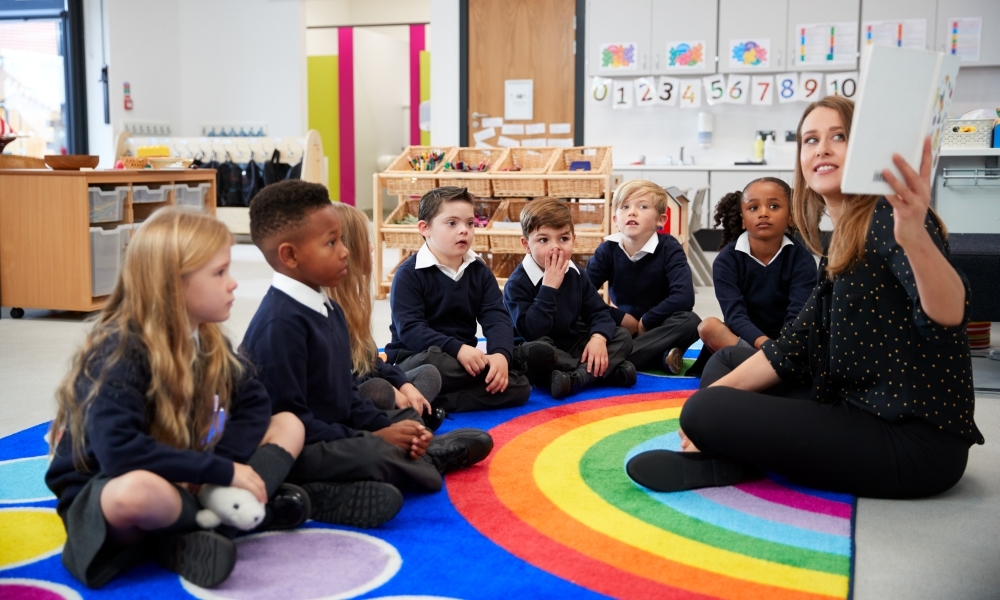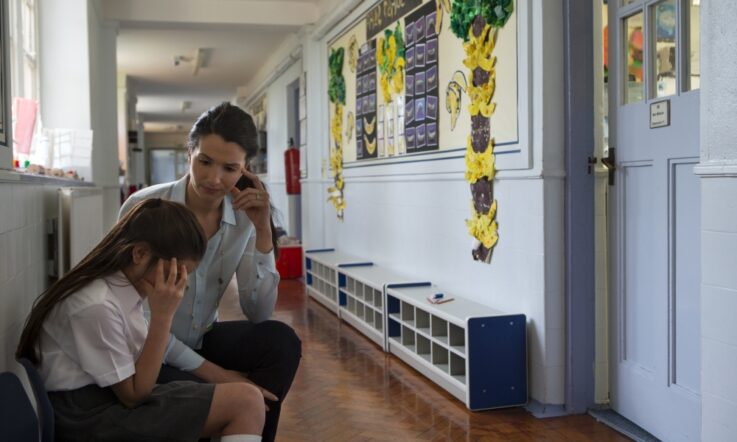Our regular Teacher’s Bookshelf feature gives readers a sneak peek of new release education texts. Empowering Teachers and Democratising Schooling, Perspectives from Australia – edited by Keith Heggart and Steven Kolber – brings together teachers and academics who are ‘committed to education about, for and through democracy’. It describes the challenges they face, and the innovative solutions being adopted.
This exclusive extract comes from the chapter Welcome to the New Teacher Tribe: Empowering Beginning Teachers by Co-creating Sanctuaries of Learning, written by Stephanie Salazar. Here, she shares the key elements of the New Teacher Tribe she developed, and how her school’s Instructional Coaching Programme provides additional support for staff.
The New Teacher Tribe is a fluid network of individuals who are passionate about supporting pre-service and beginning teachers to be the best they can be for themselves and for their students. Individuals who join the network include pre-service teachers, beginning teachers in the first four years of their career and anyone who would like to support them, including teachers, school leaders and university researchers. Anyone is able to contribute to the New Teacher Tribe events as long as their intention is to achieve better outcomes for new teachers and their students.
The New Teacher Tribe is a community of activist professionals (Sachs, 2000) built on trust, collaboration and open, democratic dialogue. Expertise within the group is utilised to build on new teachers’ knowledge and problem-solving capacities. For example, we have used one of our teachers, who is also a university researcher, to role-play challenging scenarios we face with parents, students and other staff members. These workshops allowed new teachers to understand how to apply research-based strategies for managing stress and building resilience, including ‘cognitive reappraisal’ which is a problem-focused coping strategy.
At my school, the New Teacher Tribe has become a sanctuary that was co-created with new teachers and school leaders, where we de-compartmentalise the professional and the personal, helping new teachers to navigate, prioritise and manage their professional responsibilities and building their resilience and adaptability. For example, at a New Teacher Tribe event during COVID-19, when all professional learning had to occur online, the executive team shared their biggest obstacles as beginning teachers and how they overcame them. New teachers reported how valuable the session was as it normalised a lot of their experiences and made them realise how the leadership team were regular humans too. When new teachers arrive at the school, they are often buddied up with other new staff that take them on a school tour, sharing their stories and experiences. The New Teacher Tribe thus creates a bridge of understanding and empathy between new teachers, more experienced teachers and leadership.
We listen actively to new teachers’ ideas and collect feedback, providing opportunities for them to lead New Teacher Tribe events. For example, we facilitate forums and interactive workshops where we can share tips for success as they begin the year, programming, assessment, EAL/D strategies as well as hold social events like marking parties and end-of-term breakfasts. All of these opportunities provide a space for new teachers to be honest about their experiences in the classroom and in the staffroom and recognise the expertise of all involved. They enable new teachers to act with passion and experience the fun of teaching! As an additional support, new teachers are supported in owning their professional learning and development through the Instructional Coaching programme …
The New Teacher Tribe Starter Pack
These are some of the key principles informing the New Teacher Tribe and Instructional Coaching Programme:
• New teachers are capable of success
• New teachers thrive on targeted support
• Collaboration empowers new teachers more than competition does
In short, I think that a successful programme like this requires:
• New teachers who are open to continuous learning
• A leader/principal who models democratic leadership and is able to select an appropriate facilitator or champion of new teachers
• A range of teachers who are willing to share their experience
• Time to connect with other educators online to plan events
• Venues for face-to-face events (there are many venues who are willing to donate their space for free in exchange of purchasing a few of their snacks or allowing someone from their team to do a short presentation)
How you might begin as a facilitator of a New Teacher Tribe at your school:
• Think about the number of new teachers who join your school each year. Does it make sense to establish a New Teacher Tribe?
• Take time to carefully craft your vision and mission for the New Teacher Tribe at your school perhaps with a mentor or coach
• Think about people at your school who can help you to coordinate events. What expertise is available? Consider even the new teachers who may be able to share their journeys thus far.
• Create a proposal to enhance your current induction programme, perhaps in consultation with new teachers at your school to ensure that it is tailored to their needs.
• Share this proposal with your principal/school leader and listen to their feedback.
• Begin facilitating events and capture feedback to ensure that events continue to be impactful for new teachers and their students.
Would you like to know more? If you are interested in starting a New Teacher Tribe at your school or discussing possibilities about ensuring all new teachers feel supported, encouraged and empowered, please get in touch with me on Twitter via @stephygsalazar
Empowering Teachers and Democratising Schooling, Perspectives from Australia edited by Keith Heggart and Steven Kolber, is published by Springer and available now via the link.
References
Sachs, J. (2000). The activist professional. Journal of Educational Change, 1(1), 77-94.



